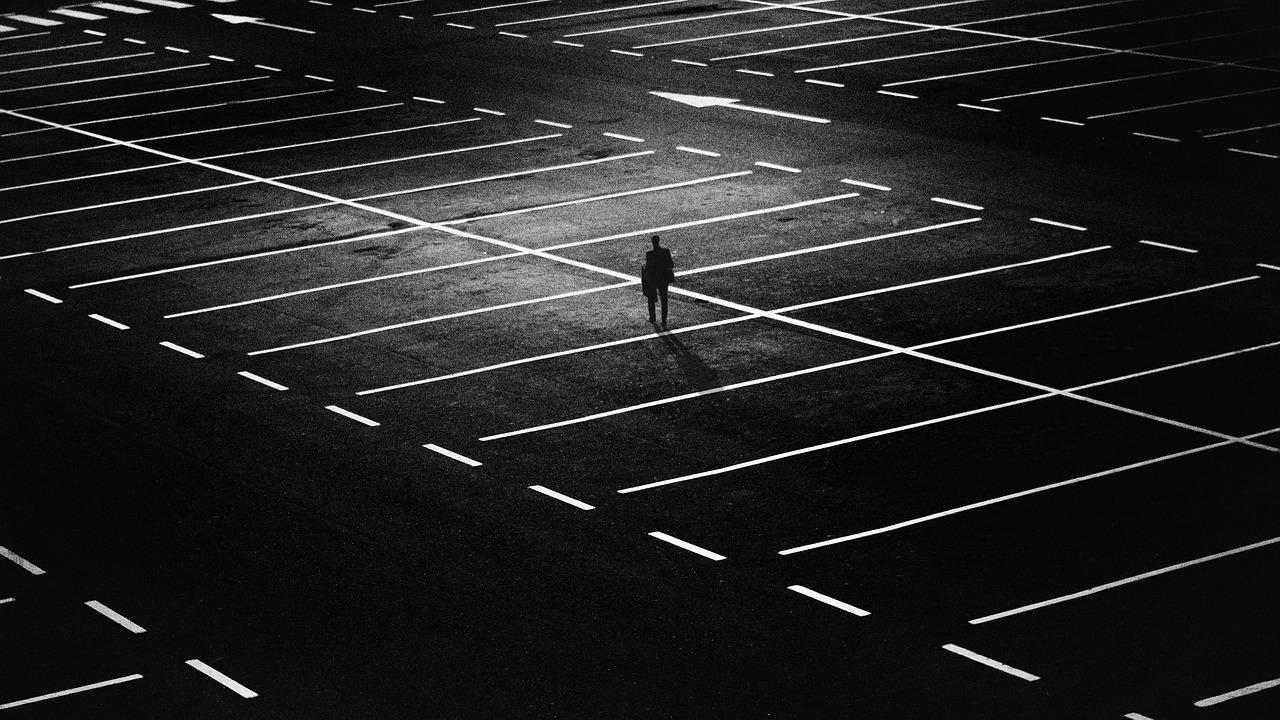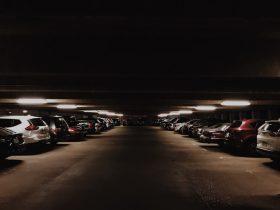- This monthly round-up brings you some of the latest news on cities and urbanization.
- Top stories: US cities rethink parking requirements; Paris creates first net-zero neighbourhood; Germany launches public transit ticket.
- For more on the World Economic Forum’s city-focused work, visit the Urban Transformation Hub.
By Lisa Chamberlain and Jeff Merritt
1. US cities rethinking parking requirements
California US congressman Rep. Robert Garcia has introduced a bill banning minimum parking requirements near mass transit hubs to reduce emissions in cities and address housing shortages.
“We know that parking raises the cost of housing immensely,” Garcia told Insider. “We need to create cities and communities that are more walkable, that are more multimodal friendly.”
As urbanization continues apace alongside the green transition, the space given over to parking in the US – an area the size of the state of Connecticut – has come into the spotlight.

For more on the future of urban mobility, read our new briefing paper.
In 2022, 11 cities ended their minimum parking mandates, according to CNN, with a further four cities have ended them so far this year, in a bid to provide more space for affordable housing and discourage use of cars.
Slate journalist Henry Grabar recently published his book Paved Paradise: How Parking Explains the World, which looks at the issues, including the surprising fact that the US builds more three-car garages than one-bedroom apartments.
0 seconds of 2 minutes, 27 secondsVolume 90%
2. Paris creates its first net-zero neighbourhood
Paris has unveiled its first zero-carbon neighbourhood – a residential complex of four buildings called the Fertile Isle (Îlot fertile).
Built on a disused industrial area, the neighbourhood includes hotels, shops, offices and sports facilities – but no parking spaces.
The buildings’ construction ensures minimal energy is needed for heating and lighting and bio-solar roofs are planned, to create energy on-site.
0 seconds of 1 minute, 13 secondsVolume 90%
It comes as the French government announced plans to spend two billion euros ($2.2 billion) through 2027 to improve cycle infrastructure and help people buy bikes in an effort to reduce car use and boost cycling.
The aim will be to double the cycle lane network and the government will spend 250 million euros a year on new bike lanes from 2023 to 2027. The rest of the budget will go towards other measures to boost bicycle use.
“The state’s bicycle effort is unprecedented and massive,” Transport Minister Clement Beaune said in a tweet.
3. News in brief: other top cities and urbanization stories this month
Germany has launched a new public transit ticket that allows travellers to use all local and regional trains, buses and metros across the country for 49 euros ($53.90) a month, AP reports. It’s hoped Germany Ticket will encourage people to use public transport more and reduce emissions from private vehicles.
Britain is accelerating plans to protect London from flooding caused by a warming climate and rising sea levels, bringing forward its scheme of work to protect the city centre by 15 years.
Companies in Singapore are partially paying housing costs of employees and even relocating staff to cheaper neighbouring cities to help them tackle home rents that rose last year at their fastest rate in 15 years.
A 70-year-old abandoned steel mill in the US city of Pittsburgh has been transformed into an innovation hub. Mill 19, built within the shell of the original mill, is now a campus for sustainable, advanced manufacturing.
The unemployment rate in the US fell to a multi-decade low in April, while wages increased, showing unexpected levels of labour market resilience, Bloomberg reports.
The ongoing lull in Indian commercial real estate will likely continue for at least two more years, though it was not clear when the sector would see a full recovery, according to the chairman of property consulting company ANAROCK.
4. More on urban transformation on Agenda
Nature-based solutions are critical for cutting the nearly 6 gigatonnes of carbon emitted every year by transport on our roads. From the more radical, such as covering a highway with a park, to replacing dying trees with drought-resistant varieties, nature-based solutions offer meaningful ways to address pollution and improve wellbeing in our cities and roads.
Walkability and micromobility are gaining popularity in the US. The “walkable, mixed-use urbanism” concept is guiding retro-fits of existing cities, but it can be a powerful framework for designing ground-up sites. One community in Utah, ‘The Point’, has found innovative ways to integrate multiple modes of mobility with a network of open spaces, connecting residents to homes and businesses as well as bike and walking trails.
The World Economic Forum’s Global New Mobility Coalition is looking for new cities to use its Urban Mobility Scorecard – a tool designed to bridge the gap between real-world challenges facing private-sector mobility players and the policy agenda set out by cities. Three cities that helped to trial and test the mobility tool – Buenos Aires, Curridabat and Singapore – showcase innovative solutions to advance action on urban mobility.
Link: https://www.weforum.org/agenda/2023/05/net-zero-paris-city-focused-stories-to-read-now/?utm_source=pocket_saves
Source:https://www.weforum.org
















Leave a Reply